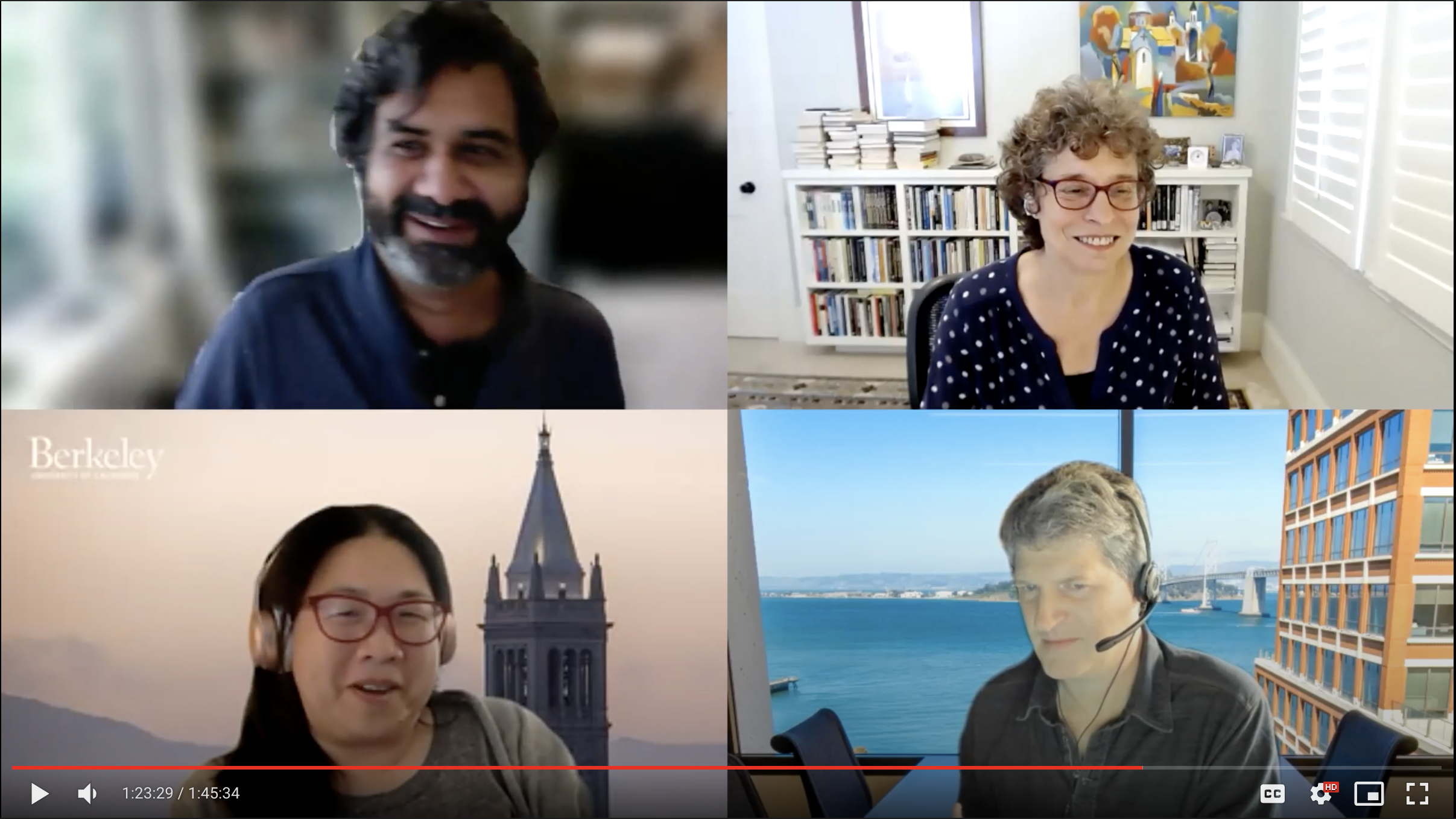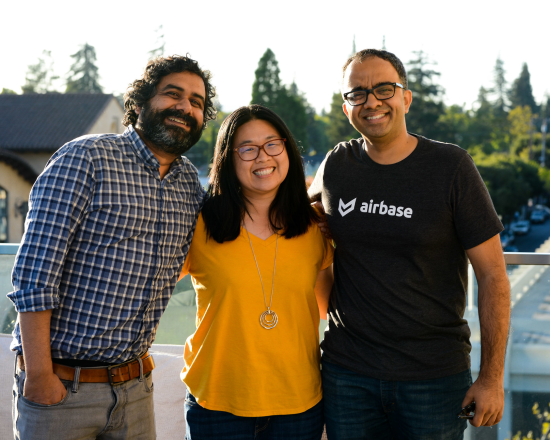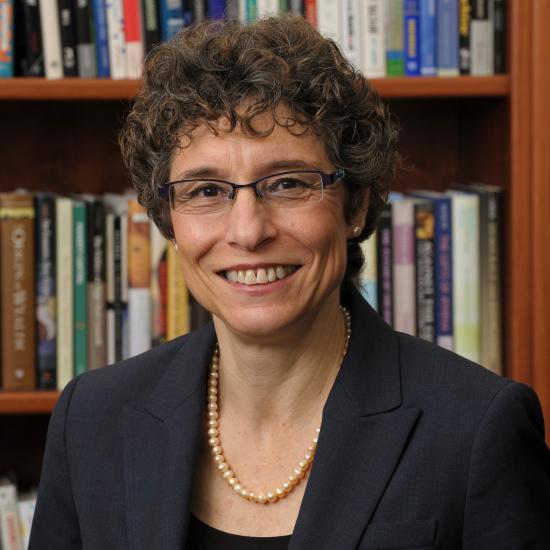I School class examines what it takes to bring an idea to market
There are a lot of great ideas out there, but a great idea is only the first step in launching a company. This spring, I School professor and former dean AnnaLee Saxenian teamed up with Elliott Adams, a startup mentor and author, to teach a course focused on entrepreneurship and what it takes to bring that idea to fruition. INFO 287: New Venture Discovery introduced UC Berkeley students to the process of launching an information-intensive venture — a social enterprise, business startup, or a venture inside an established organization.
In multidisciplinary teams, students refined their ideas, designed and executed fast experiments to validate them, and continued iterating to achieve “product-market fit.” Saxenian said that the students “learn how important it is to interact with potential customers to validate both the problem they are trying to solve and the target customers for the planned product or service.”
Master of Information Management and Systems student Bobby Zhang (’21) said that one of the most surprising things about the class was how much experiential learning was emphasized in the entrepreneurial-focused class. “Anno is a professor who encourages hands-on, extensive user interviews and iterative prototyping,” he said, which is unusual in classes that tend to emphasize business strategy and market research.
Supporting Innovation
Throughout the semester, teams worked closely to research and prototype their ideas and had weekly visits from I School alumni guest speakers, like Dhawal Mujumdar and Satish Polisetti (both MIMS ’11), whose advertising start-up, Polymorph Labs, was acquired by Walmart in 2019, and Kristine Yoshihara (MIMS ’15) founder of Quadrant Eye, which recently completed Y-Combinator in the W21 cohort.

The culmination of the semester’s work was presented during the final class in a series of presentations where teams presented their pitch deck — a slide presentation intended to showcase the company's products, technology, and team — to possible investors who assessed the feasibility and potential of the ventures. The panel of investors, in this case, were I School alumni Prayag Narula (MIMS ’12), founder of Lead Genius, and Holly Liu (MIMS ’03), founder of Kabam, as well as Noah Doyle of Javelin Venture Partners, also a Berkeley alumnus.
Narula, Liu, and Thejo Kote (MIMS ’11, founder and CEO at Airbase), are among a group of alumni ‘innovators’ championing future founders at the I School. They’ve spearheaded a fund supporting student entrepreneurship and incentivizing innovation, including prize money for this class.
Since 2006 more than 50 I School alumni are known to have launched start-up enterprises and this trio of alumni is giving back in hopes to fuel future success which, in turn, can foster new generations of students who give back to Berkeley. To date, more than 450 Founders have signed on to do just that through Berkeley’s Founders Pledge.
Winning Ideas
The ideas were varied: an app that helps you stay in touch with your social network, a company that offers a streamlined online furniture shopping experience, a STEM subscription box for kids, and a marketing and customer resource management platform for indie bookstores.
Liu commented that the class, “helped many of the students look for real-life problems and how to solve them,” and said she was impressed with what the students were able to accomplish in the semester.
The four teams presented their decks to the panel on Wednesday, May 5, 2021, and fielded questions and comments about their products. Prayag Narula was especially happy to participate: the class is a revived version of the course that first inspired Narula and his Lead Genius co-founder, Dave Rolnitzky (MIMS ’11). Narula announced the winners: first place went to ‘Corcle,’ a social assistant app, and the runner-up went to ‘Furnitureland,’ a furniture shopping aggregator. The first prize team will receive $3,000 plus a subscription to Product Hunt, and the second prize will receive $1,000 and the subscription to Product Hunt.
Narula said that he was personally very impressed with the ideas and innovation he witnessed in the class and that he was very proud of what students were able to achieve in such a short time. “I’m usually the person being judged,” Narula told the students. “In the last ten years, I’ve heard ‘no’ at least 10,000 times. For the people who didn’t win, don’t be disappointed, this is part of being a founder.”
Alumni and companies interested in supporting future I School Innovators are welcome to contact I School Senior Director of Philanthropy Shanti Corrigan for more information at shanti@berkeley.edu.











